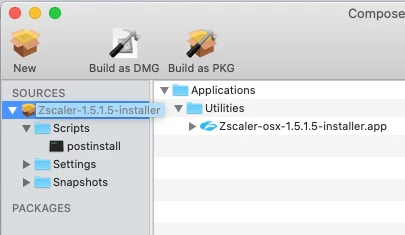We have signed on with ZScaler and they have provided and .app installer. I have used Composer to convert it to .pkg and uploaded it to our repository. When I setup a policy to install the app, I get a log that states it was successful but ZScaler app is not installed on the target machines. Has anyone else run into this issue and what did you do to get it resolved?
Thanks,
Wil









